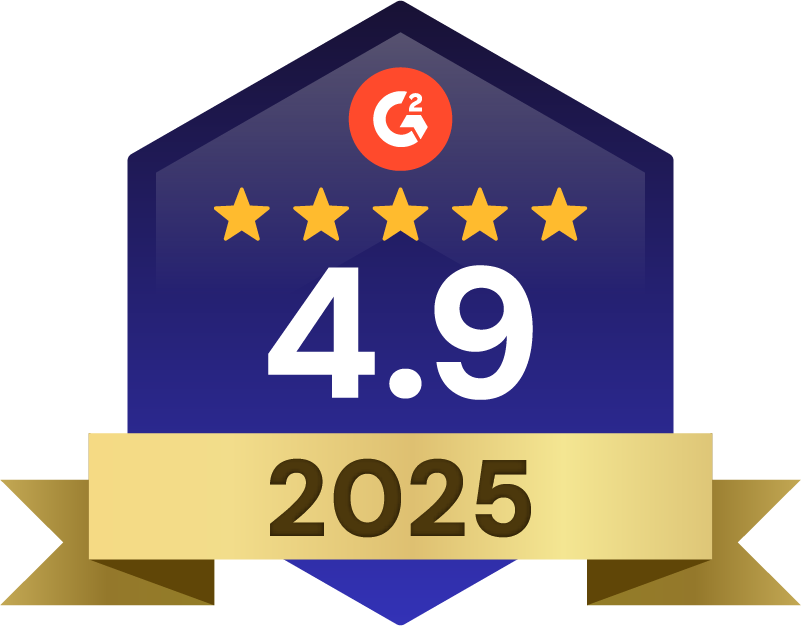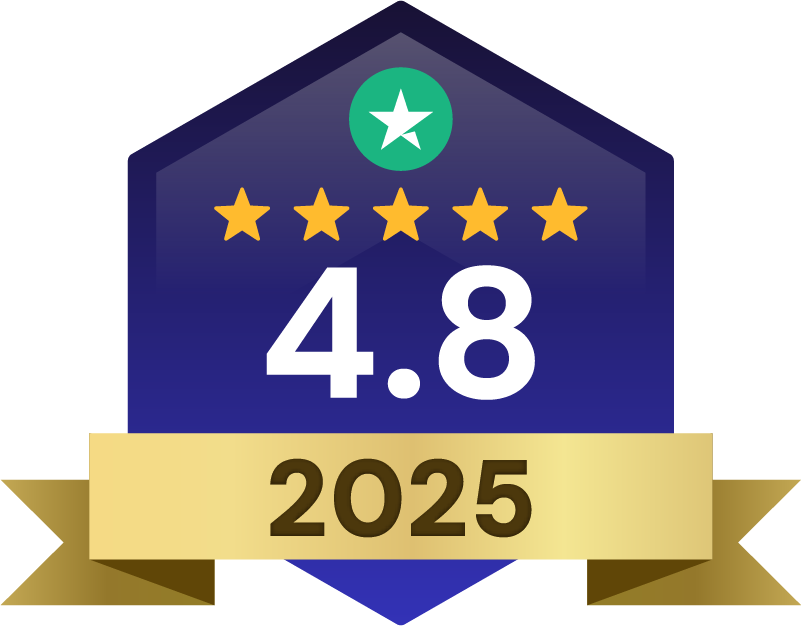When it comes to scaling a business... The best thing you can do is put systems in place for important but low-yield activities to free up your time. Let's break this down into 4 simple tasks to implement so you can start saving time.
Email Marketing
You may already have some type of real estate automation process in your business, such as date reminders and alerts. Technology makes this process easier, but more advanced software can further simplify the process.
Today, automation tools are not only customizable but scalable without letting any of your contacts fall in the cracks.
Remember that there are millions of real estate agents in the USA, so your potential client is likely already in someone’s database. The second someone new pops up, it’s time to start the lead nurturing process. However, as a single agent, this is only consistently possible with the right software to help you.
Real estate automation allows you to give all of your clients equal attention and plan predetermined messages. Once these new leads have settled into your pipeline, you’ll know who is a hot lead and who is a cold lead that you may have to develop a relationship with over a long period of time.
When it comes to scaling a real estate business the best thing you can do is put systems in place for important but low-yield activities to free up your time.
By the end of the article you will be able to:
- Understand what real estate marketing automation can do for your business and how to make the most of it
- Overcome pressing challenges using automation software
- Chose the best marketing automation tools to invest in
- Brainstorm creative uses for real estate marketing automation tools
We’ll cover:
- What real estate marketing automation tools can systems look like
- The payoff of investing in automation software
- The transformative areas of focus of real estate marketing:
- Email Marketing automation
- Social Media automation
- Customer relationship management (CRMs)
- Lead generation
If you’re looking to do a few extra deals this year, keep on reading.
What is Real Estate Marketing Automation?
Real estate marketing automation can be described as taking advantage of automatic tools to complete a range of tasks on your behalf and cut your workload and time investment
The most popular challenges real estate agents use automated tools for include:
- Falling behind with tech advancements: Modern client demands require modern solutions. Make use of tech tools and their regular system updates to turbo-charge your marketing results
- Inability to generate high-quality leads ad listings: The right automated tools can cut down your lead gen process and help to segment them based on features such as age, interest, income, family status and more
- Time-saving: Real estate is unlike any other industry because a sales funnel can span weeks or even months. It can be a lot for a realtor to stay on top of this long-term communication on their own.
- Become a leader in your hyperlocal market: In today’s day and age over 90% of agents are using real estate marketing automation tools to help them along, such as CRMS. Chatbots and more. If you’re not taking advantage of the same tools, you’ll surely be left behind
- It’s easier to scale up: With all of your contacts’ information, and communication history at your fingertips, it’s easy to scale up in size. CRMs can easily accommodate growing businesses without complicating the process.
- Consistency: Before marketing automation tools, agents would have to actively track detailed data in Excel, Google docs, or different software. Manual entry, however, allows for more opportunities for error.

Setting Up Your Real Estate Marketing Automation
Let’s break this down into simple tasks to implement so you can start saving time, starting with email marketing automation.
Identify Tasks that Can be Automated
Automation Academy has found that businesses experience a 30 – 40% decline in overall costs after automating their average job function.
Ask yourself and your team the right questions such as:
- What are the repetitive tasks that are time-consuming or prone to manual errors?/
- Are the processes and efficiency of these processes major contributors to sales?
- Which tasks are the most frustrating or tricky for your team?
Get Clear on Your Marketing Goals
Your marketing goals and strategies will be different for each group on your contact list. For example, the way to grab the attention of a foreign buyer compared to a local person who is switching towns, will be different.
Once you have clear client personas laid out, you can start to plan the marketing strategies for each.
Identify Your Unique Selling Proposition
There are loads of real estate agents out there for your clients to choose from. It’s your unique selling points that set you apart from anyone else. All of your messaging should explicitly or loosely tie back to this point.
Articulate Specific Goals
Depending on the stage of your segment and what you wish to see from them next, you may address them differently, share different resources, contact them at a different frequency than other segments, or address different topics of interest.
Plan Time and Financial Budget
Every extra second you spend on marketing is coming out of your budget. Even you decide not to use automated marketing tools, you will be dedicating more of your valuable time to marketing over home sales in that moment. It may not be a lucrative strategy for you to poach FSBO listings all day instead of following up with past clients who may be looking to upsize their homes.
Set Your KPIs (Key Performance Indicators)
Your key performance indicators will tell you if all of your marketing efforts are equating to the change you want to see. Real estate marketing key performance indicators can include:
- Cost per hot lead: How much does it cost you to run the marketing automation tool of your choice and how many leads does it produce as a result?
- Traffic Sources: Leads are the life force of your real estate business, so it pays to get clear on where you are gaining the most leads and which funnels you can tighten up. This will provide great direction on where to focus your marketing efforts and which automation tools can be used to improve the lead funnels that are not running so smoothly.
Depending on the real estate marketing automation tool, you may use different KPIs to measure the efficiency of each tool. For example, an email drip campaign to motivate past clients to share referrals can be measured by the percentage of leads received by the amount of emails sent and the time required to acquire the lead. A real estate landing page can be measured by page visits or contact form entries.

How to Use Marketing Automation Tools for Real Estate
Lead Capture Forms
When a lead reaches your real estate website, landing pages, or social media you should have their information within the first few interactions of engagement. Make sure a lead capture form finds its way to them within a couple of searches on your real estate website.
Once your automated lead capture form has gotten at least their name and email, you can add them to an automated email drip campaign to strengthen your connection and knowledge of what they are looking for. Further engagement or lack of engagement will tell you how to direct your next move.
Consistent Branding Across Your Digital Presence
The best way to help new leads get familiar with you is to develop a strong and recognizable brand voice. Marketing automation can help you make sure that you are sending consistent messages across all platforms and not missing any opportunity to be seen online.
For example, some CRMs or social media planners will help you post about your new real estate blog article, share it on social, and send out an email newsletter in just a couple clicks. Or you may choose to schedule them in a particular order in order to get the most widespread coverage.
Data Analysis
Analyzing your client data gives you a detailed view of your contacts. It’s possible to get all of this information without having to manually extract the data or reach out to your contacts to ask them.
For example, you may want to browse analytic data to identify when clients are typically ready for in-person meetings, track incoming messages from hot leads, see which marketing funnels attract the most successful leads, etc.
Put time aside to review your analytics each month to identify timely opportunities for change to your marketing plan. Many email marketing platforms, for example, will automatically inform you of how many people have opened your email and clicked the links inside. This will give you an idea of what types of emails truly resonate with your clients and produce the results you want.
Website Forms
Prospective clients are doing more real estate research online than ever before. With the right lead capture strategy, you can find them where they are. Your real estate website, in particular, can capitalize on this by offering helpful downloadable guides or similar content in exchange for a users’ contact information.
For example, a website form can route users’ contact details into your CRM so that they can automatically get set up on a nurture campaign for your website visitors. For example, after using the Home Valuation tool on your AgentFire real estate website, you can add them to your hyperlocal newsletter that provides updates on similar listings. Or, you could share a form with them to get more details about what they are looking for and show your genuine interest in having them as clients.
Open House Lead Generation
Open houses are often better lead generation tools than quick-sale tools. Many of the people who come into your open house don’t yet have an agent and would appreciate an agent who educates them and gets them set up on the right track.
Use a digital attendance form at open houses that will route contact information directly to your CRM.
Streamline Time-Consuming Tasks
Automation helps you cut down on tasks that take up useful and lucrative tasks such as meetings, follow-ups, and reminder emails.
You can automate welcome emails and drip campaigns with monthly tips and insights, and other useful content.
You may send automated emails after open houses with similar listings that may interest them or local market updates.
Customer Relationship Management (CRM)
CRMs are the automate lead management tool for finding, keeping, organizing and maintaining high-quality leads.
Use the CRM and sync it to your calendar. Set up automatic reminders in your CRMs so that clients never miss a video call. Most CRMs will allow you to set goals or reminders – and it is important to do so to create a structured personal follow-up process.
Reach out with a personalized email or phone call, invite your lead out for coffee, make conversation etc. Do whatever you can to build that rapport and trust.
By setting up reminders, you eliminate the guesswork. Stop scrambling around trying to make sure your leads are followed up on. Put it on the calendar and execute.
With CRMs you can segment your leads into groups based on their preferences, needs, and demographics – and that’s just the beginning. Most CRMS can now take care of major real estate agency tasks such as:
- Contact management
- Integration reporting (e.g. how many leads were brought into your CRM from your real estate website)
- Project management
- Billing and Invoicing
- Listing management
- Lead management
- Assigning tasks to team members
- Simplify data entry
Every agent has a database, and if agents are using automation correctly, that data base will be a CRM. There is no other real estate tool more dynamic and efficient for tracking, organizing, following up with, adding, and marketing to leads.
Your CRM should be at the center of all of your digital marketing platforms so that you can get a thurough overview of how your marketing strategy is functioning as a whole.
Real estate automation
Social Media Channels
Social media is a powerful way to share messages and widen your reach with less effort. Use real estate automation to set up targeted ads.
Social media works best when you have a consistent schedule and pre-planned posts set up. Consistent, small interactions can accumulate to build a strong social presence. Automation is essential for busy agents who don’t have the time to show up on socials consistently throughout the week.
Use a Social Media Scheduling Tool
Instead of using a social media auto-scheduling tool – you may opt for an auto poster.
Basically, any time you put a new piece of content live on your blog, the program will share it across your social media profiles.
Depending on the social media automation tool, your chosen platform may take care of:
- Resizing and editing images
- Scheduling posts in advance so that they go live without any additional action
- Measuring the success of each social media post and campaign
- Analyzing your target audience’s activity on the platform to determine when is the best time to post.
- Taking an inventory of your content
- Make a list of good content from non-competing businesses in your market or on the general topic of real estate
- Create some fun, entertaining or just generally interesting post ideas (can be quote pictures, videos etc.)
Chatbots
Chatbots have become a popular automation tool used as a customer service resource. In 2024, chatbots are one of the most popular language processing tools used by real estate agents to attract more clients.
Learn how to use chatbots in your real estate business here.
Real Estate Market Reporting Automation
Reporting is one of the easiest ways to collect information on the happenings within your real estate office, but also to keep all members of your team accountable without constantly being on their backs. Some CRMS and time-tracking tools can track the productivity and performance of your team members, and record each interaction they have with clients and between each other on your professional platforms.
This feedback can help you identify opportunities to work better together as a team and get the results you are looking for.
Media tracking and reporting is also crucial to keep you updated on the current real estate market and make the most informed decisions for your clients.
SMS Automation
Texting is a quick and direct way to follow up with clients, especially for time-sensitive reminders
Using automation, agents can send out bulk texts in seconds to their entire contact list or segments, in seconds. Take advantage of text and email autoresponders. Remember that lead response times are hugely important.
Remember that the “odds of making a successful contact with a lead are 100 times greater when a contact attempt occurs within 5 minutes.”
PPC Ad Management
Advertising with paid ads such as Facebook, Instagram, and Google is one of the most powerful marketing opportunities that AI has allowed region-specific professionals such as those in the real estate industry.
Within these platforms, you can target your ideal clientele by a number of factors including demographic and locations. The algorithm within these platforms then decides who to position your ads in front of based on data that it gathers from each user on the platform. It’s easier than ever to reach your audience right where they are, for a fairly low cost.
Automated Emails and Drip Campaigns
Setting up email automation is an absolute must for real estate agents. If you don’t have automated email campaigns and follow up running right now, it’s time to get on it. Typically, your email contact list is the only list that is truly yours. Contacts on social media platforms, for example, can be easily removed or disconnected by the platform.
When your email marketing is responsive to a user’s previous actions and interests, it creates a personalized experience for your clients that makes them feel seen and understood.
Build a Drip Campaign
The next step in real estate marketing automation is creating a drip campaign. This will ensure you’re following up with and nurturing leads. Nurturing leads and maintaining consistent follow-up is an important part of lead management.
Trust is one of the main drivers behind a homeowner’s decision to list with you. If you want to build trust, you’ll need to build a solid list of contacts to give you credibility.
Get in front of your leads as much as possible. Don’t let them fall through the cracks.
For example, if you have multiple clients who are several months out from making a sale or buying a property, it’s important that those clients are placed in a time-frame-based, email nurture drip to maintain your connection.
Your email drip could include something such as a market update or a client testimony. You want to give them a good idea of what the upcoming prices will look like and get them excited bout making the next big step. As most clients agree that responsiveness is highly important, they’ll think highly of you if you initiate communication regularly with relevant information.
Find the Right Email Marketing Automation Software For Your Business Goals
There are countless email automation options available. The right one for you will depend on the size of your contact list, your budget, and your data needs. Choosing a new email marketing platform is not easy, so aim to choose one that you see yourself using long time and can scale with your growing business.

Optimize Team Workflow
A workflow is a digital sequence of processes planned out to reach specific goals as a business. Define preset tasks and actions that your team usually takes care of and simplify the process using your chosen tool from beginning to end. For example, use alerts instead of manual calendars to tell your team members when to renew their real estate licenses or complete a certification course.
This reduces the amount of time and energy your team spends on clerical tasks and saves them time to dedicate to other more complex tasks.
Ready to get started with the Top Tools for Real Estate Marketing Automation?
Here are the first 13 you need to check out.
In Conclusion…
If you want to make more and work less… Or scale up and start generating more listings, you need to implement real estate marketing automation and delegation into your business.
Starting with these primary items will help ensure you’re operating efficiently and not losing out on any potential leads.
Are you doing any of these things in your business? How is it going?







